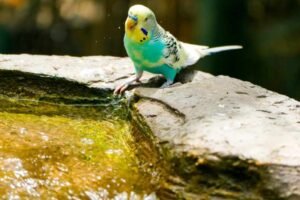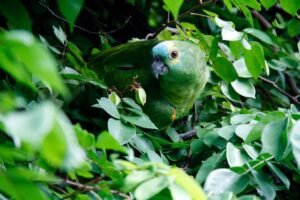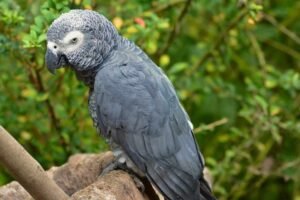Why do parrots attack my feet? Sadly, there is no obvious answer to why parrots might be obsessed with feet. However, they aren’t very biased and often bite their own feet too. Your parrot could bite instinctively, or it could be due to some pent-up aggression. Other possible reasons include overstimulation, defence mechanism, and playfulness.
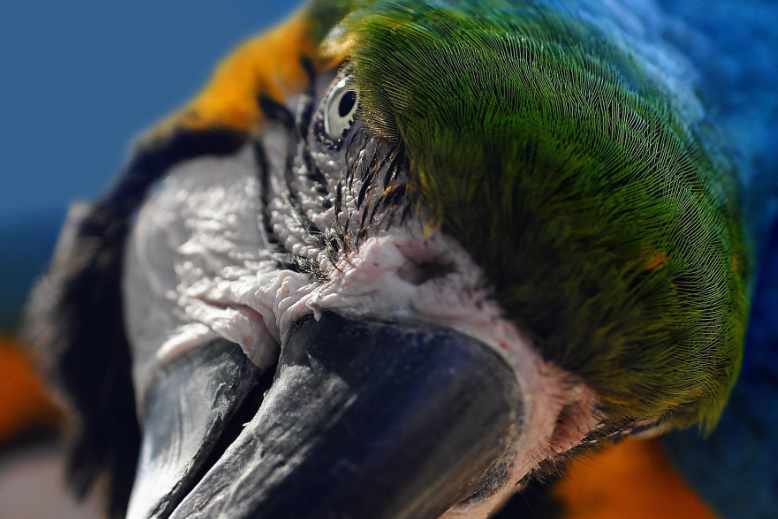
No matter if you have a calm and mild-mannered birdie or an aggressive little parrot at your hand, you are most likely to get bitten by it, and there is nothing unnatural about it! It’s a normal parrot behaviour that may hurt, but there is no convincing answer to why parrots go into attack mode whenever they come across our feet and toes.
In today’s blog, we will look at some of the possible reasons illustrating why parrots attack my feet. We will also explore what makes a parrot bite its own feet and how can we protect our toes from sneaky parrot attacks.
So without further ado, let’s find out why our feathered friend might be acting this way.
Why do parrots attack my feet?
Though it is challenging to address this question regarding bird psychology, some logical reasons can help us understand our avian friend’s behaviour.
Let’s look into all the details together.
- They might be exploring their environment.
Parrots are much like human babies. And just as a curious human baby explores the world by putting anything in his mouth, parrots do the same. That’s also why puppies chew your shoes, little kids put everything in their mouths, and parrots bite on whatever seems interesting to them.
Biting is, in fact, your little birdie’s way of exploring his environment and checking whether things are edible or not. So if your young parrot is trying to bite your feet, he may be curious and wishes to explore new things.
Of course, the little fellow does not understand yet that his curiosity could be hurting you!
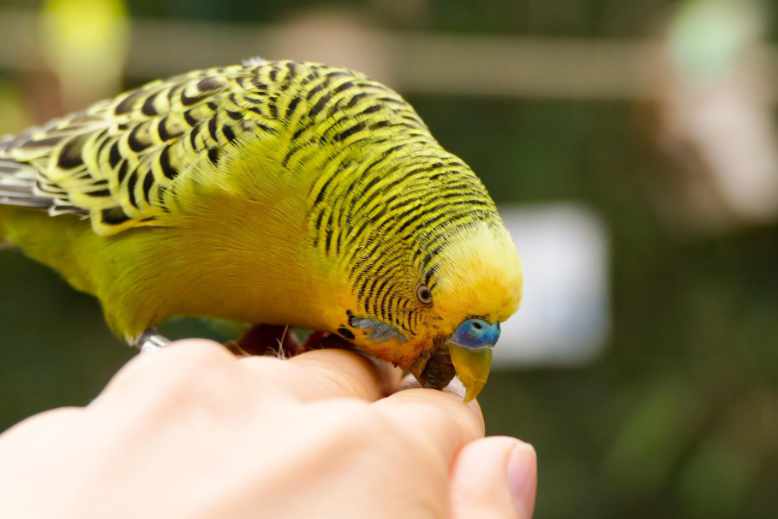
- They are playing
If you are a pet admirer, you have probably seen the cute internet videos where small puppies or kittens tend to bite hands while playing. Such playful sessions usually end with teeny weenie bites, and the situation is pretty similar with parrots.
Your parrot may think of your toe as a toy or a plaything and periodically attack it to involve in the game. This sort of biting and attacking has nothing to do with being bad, aggression, or fear but sheer playfulness.
Although this play session biting seems adorable, you shouldn’t encourage this behaviour at all. Instead, train your parrots to understand that feet and toes are a part of your body, not their toy.
- They are afraid
Fear is the most common reaction of most animals and birds regarding things they are unsure about. Your bird is most likely to attack an unfamiliar object, causing him to fear.
This may seem funny to you, but your pet may be afraid of your feet if he hasn’t had the opportunity to explore or interact with them as a chick. The fathered fella may simply not understand what it is, and by attacking your toes, he may be trying to figure out if your feet can cause any sort of harm to him.
To parrots, your feet look bizarre and uncommon. While being baffled, they may peck at your feet, not out of aggressiveness but terror.
Generally, this applies to a lot of objects that are unfamiliar to parrots.
- Your parrot is overstimulated.
Parrots are probably one of the most social pets you can ask for. They love to play and interact with their owners, even from a young age. However, some parrot species are more active than others. Parrots such as amazons, caiques, conures, and cockatoos can become overstimulated during a play session and may use their beak to nibble at your arms, fingers, toes, or feet. Their excitement quickly turns to irrational behaviour, often caused by overstimulation. So if you have a bird who likes to bite your feet, overwhelming excitement and cheerfulness could be something to blame.
Why do parrots bite their own feet?
Well, some naive parrot parents think that parrots bite their own feet for the same reason they attack ours. But that’s not it at all! When parrots are playful or scared, they don’t bite their own feet. Such behaviours only indicate a violation of health which could be either psychological or physiological.
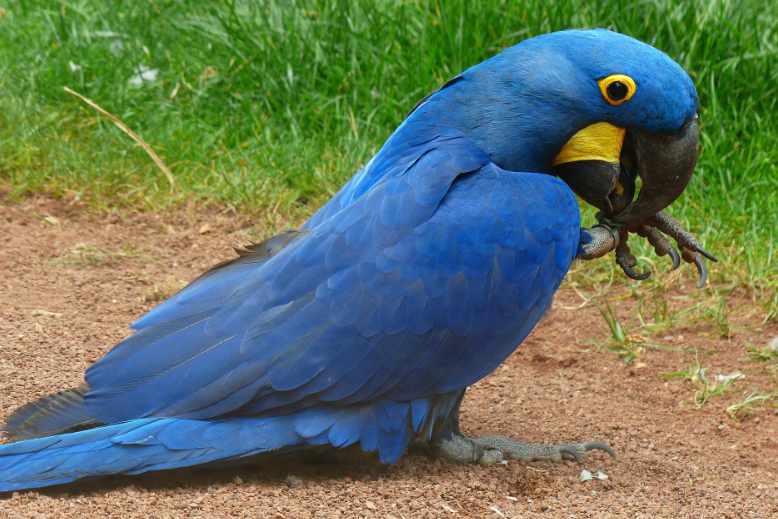
- Medical reasons
A fungal, bacterial, or viral infection is the most common reason a parrot might bite its own feet. Most of these infections cause tissue inflammation, provoking unpleasant sensations and severe itching. As a result, your parrot bites his own feet.
Parrots are also known for biting their feet due to dermatitis, arthritis, or allergic reactions. Bumblefoot is another bacterial infection that leads to severe skin irritation.
Avian herpes virus is a condition causing various infections and itchy feet in many birds. Though highly contagious, it can be cured with medication and disinfection.
- Psychological reasons
Parrots are sensitive creatures. They are prone to extreme stress, mental disturbances, anxiety, and fear, causing impulsive behaviours and leading them to harm their bodies. Some of these behaviours include feather plucking, head butting, shaking, and biting their own feet.
- Boredom
Like all other animals, parrots can also experience boredom. When your avian friend has nothing to do with his time, he may entertain himself by biting his feet.
Try to figure out the root of why your parrot bites its own feet and ponder if the little fellow is stressed. If boredom is the reason behind this impulsive behaviour, adding various entertaining and intellectual tasks may help them cope with their current situation. Also, ensure your bird is in excellent physical health, his cage is clean, and there are no infections to worry about.
If none of these are the triggers, take your friend to the vet for a proper diagnosis and treatment.
How can I stop my parrot from biting?
If your feathered friend often reaches out for your feet, it’s a must to control this behaviour for the betterment of the bird and yourself, of course. Biting may not be out of aggression, but this behaviour can go from adorable to very painful in the twinkling of an eye. Therefore, you must curb this habit.
Follow these practices to prevent your pet from nipping your toes.
- Keep those toes out of sight.
If biting is not caused by aggression or any medical concern, and the only time your pet attacks is when he sees your feet, then the only logical thing to do is to keep your toes out of your birdie’s line of vision. Hide your feet by wearing a pair of socks or use slippers if the parrot is on the floor.
If you have company over, keep your pet off the floor, so he isn’t tempted by feet.
- Move to a new location.
While wearing socks and slippers are some nuanced ways to prevent biting, they aren’t training the little fella to stop nipping. If you wish to train your pet that this behaviour is unacceptable and wrong, move to a new location whenever they try to bite.
Like canines, parrots also react to the emotional response of their parents. Moving to a new location will take your attention away from them, and they will learn that if attention is what they need, biting will have to go.
- Train from a young age
If you have a parrot chick, you can keep biting tendencies at bay by introducing them to different stimuli at a young age. Let them explore your feet from childhood, and they will grow less fearful.
- Avoid yelling
If you yell at your parrots, you are giving them a reaction that reinforces this behaviour.
So try not to raise your voice and just walk away.
Wrapping up
Parrots can attack our feet for numerous reasons, as stated in the article. Regardless of the pretext, it is only wise to control this behaviour before things become painfully annoying.

